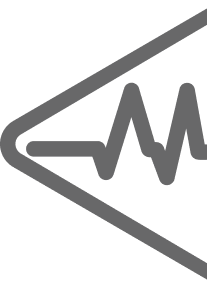Migraines
Migraines:
Migraines are a headache disorder characterized by recurring, severe headaches that often come with other symptoms. These headaches can be extremely debilitating and affect your daily functioning. 12-15 % of the general population experience migraines. It is most common in the 30-39 age group and tends to run in families.
Diagnosis
Migraines are diagnosed based on your medical history and physical examination. Your healthcare provider may ask about your symptoms and may order tests to rule out other underlying conditions. Keeping a migraine diary that tracks the timing and triggers of your headaches can be helpful for diagnosis.
Symptoms
Migraines often have a specific pattern and can be categorized into four phases:
-Prodrome: Occurs 1-2 days before the headache and may include symptoms like mood changes, food cravings, neck stiffness, increased thirst, yawning, constipation
-Aura (25% of people experience this): Visual disturbances are the most common but other neurological symptoms such as sensory, verbal or motor that precede or occur alongside the headache.
-Headache- This is the most intense phase and can last from a few hours to several days. It is usually described as throbbing or pulsatile and is typically on one side although it may occur on both sides of the head. Symptoms may include severe head pain, nausea, vomiting, and sensitivity to light and sound.
-Postdrome- The recovery phase after the headache, where you may feel tired or have lingering symptoms.
-Redflag symptoms, which are concerning symptoms that may indicate a more serious cause includes, new onset headaches in someone who has cancer, weight loss or pregnancy. Headaches with double vision, ringing in the ear, neck stiffness, weakness on one side of the body, or confusion should be evaluated as soon as possible.
Management
- Your healthcare provider may prescribe medications to relieve pain and reduce the frequency and intensity of migraines. These can include pain relievers, triptans, and preventive medications.
-Lifestyle Modifications:
–Keep a migraine diary to identify and avoid triggers like specific foods, stress, and hormonal changes.
-Practice relaxation techniques, yoga, meditation, or deep breathing to reduce stress.
- Maintain a consistent sleep schedule and aim for 7-8 hours of quality sleep each night.
- Dehydration can trigger migraines, so drink enough water throughout the day.
- Eat regular, balanced meals and avoid foods that may trigger migraines.
Prevention
Preventing migraines often involves a combination of lifestyle changes and medications. Your healthcare provider may recommend:
1. If you have frequent or severe migraines, your doctor may prescribe preventive medications.
2. Lifestyle Adjustments:
- Avoid trigger foods, such as wine or aspartame, nitrates and consider dietary changes.
- Engage in regular physical activity to reduce the frequency and intensity of migraines.
- Maintain a consistent sleep schedule and create a relaxing bedtime routine.
- Identify and manage stress triggers in your life.
3. Biofeedback and Cognitive Behavioral Therapy: These techniques can help you manage stress and learn to control physiological responses.
4. There is some mixed data on acupuncture
Remember, managing and preventing migraines is a personalized process. Your healthcare provider will work with you to develop a treatment plan that best suits your needs.
*Seek medical attention if you experience a sudden, severe headache that is different from your usual migraines, as this could be a sign of a more serious condition.*















